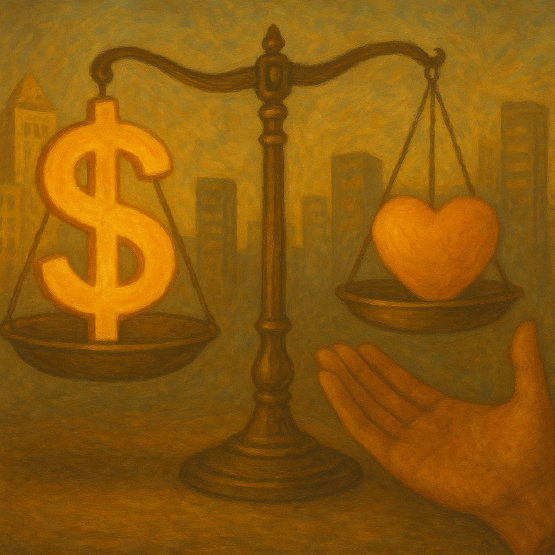What is Ethical Investment? Finding the Balance Between Values and Returns in Modern Finance
Face of finance, mirror of humanity
Today's finance can no longer be explained solely by numbers and graphs. Technology is advancing rapidly, the economic structure is becoming increasingly sophisticated, and within it, human desires and responsibilities, beliefs and doubts are intertwined. In this way, finance reveals itself as a moral mirror reflecting the ethics and values of human society, transcending a mere industry. This journey of finance, which traverses the past, present, and future, ultimately leads to one fundamental question: 'What are we earning money for, and what should we protect?'
Fundamentals of Finance Through the Past, Present, and Future
The foundation of finance was trust. However, amid the waves of industrialization and globalization, this trust has often eroded under the name of 'profit.' The global financial crisis of 2008 was a prime example of this. Greed that ignored risk, the rampant issuance of opaque financial products, and a system that evaded responsibility led not only to the collapse of markets but also to the collapse of ethics, reflecting a finance that neglected human values. However, these failures should not be seen merely as past mistakes, but rather as a compass guiding our direction today. Technologies such as blockchain, digital assets, and artificial intelligence have made finance more open and transparent, but at the same time, new forms of speculation and distrust are also growing. This is because technology does not inherently guarantee ethics. If the advancement of technology does not achieve a balance with human-centered reflection, we may fall into an even deeper moral silence than before.
Revenue and value, the tense tug of war
Today's finance still operates around profit. However, lurking behind that is an implicit question: 'Is profit everything?' Actions that cross ethical gray areas in pursuit of high returns gradually erode the trust-based foundation of financial markets. The chaos of the cryptocurrency market, excessively complex financial products, and the asymmetry of insider information symbolize the risks that arise when finance prioritizes structure over humanity. Nevertheless, we are not merely beings driven by numbers and figures. Some investors are willing to incur losses to uphold their beliefs, and certain companies place social responsibility at the core of their management. Trends like CSR (Corporate Social Responsibility) and ESG (Environmental, Social, Governance) are not just fads, but evidence of the possibility that 'ethics and profit can coexist.' In an era where profit should define value, we are moving towards a time when value will define profit.
Finance, Redrawing the Face of Humanity
It is now time for finance to seek advice. 'Why am I doing this?' 'What values do I want to uphold?' These questions are not limited to an individual's moral dilemmas. Corporations, institutions, and society as a whole must find answers together. We are now in an era of recovery. It is time to confront the wounds of the past, face the chaos of the present, and design the direction for the future. Financial education must take root in human-centered values, and ethical standards must be a premise rather than an option. The system should include transparency and accountability, and institutions must embrace efficiency while respecting human dignity. Finance must now regain a perspective that sees people before numbers.
Choices for the Future: The Harmony of Money and Belief
The vision for future finance is not simply about generating more profit. It should be about profit that creates a better world, growth that includes more people, and prosperity for a more sustainable planet. As seen in ESG investments, profit and responsibility are not concepts that undermine each other. Protecting the environment, reducing social inequality, and establishing transparent governance ultimately generate healthier and more stable returns. These changes are not just dreams they are directions that have already been proven feasible. The digital transformation of transportation infrastructure, the development of services for financially underserved populations, and a culture of fair and open information sharing must become practices rather than ideals.
The path we choose
This path is not easy. Upholding moral standards sometimes means enduring losses, withstanding criticism, and choosing the slower yet righteous way. However, at the end of that path lies true trust and sustainable prosperity. The decisions we make today are not just a simple investment strategy but a promise to future generations. In the tug-of-war between profit and value, we must place 'people' at the center, along with the 'beliefs' they hold. And where those beliefs live, the future of responsible finance will quietly begin. That is the way for finance to truly regain its 'human face'.

Post a Comment